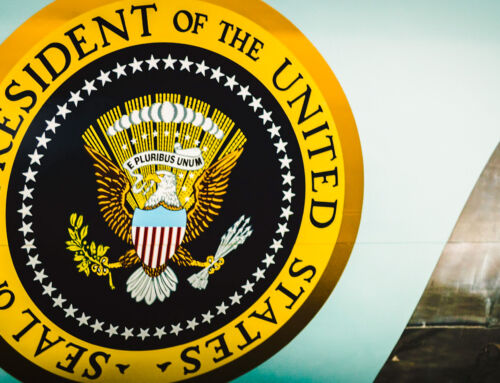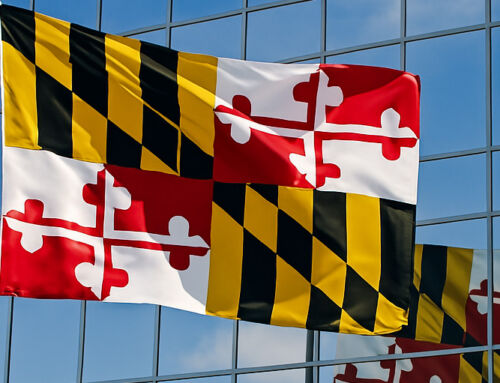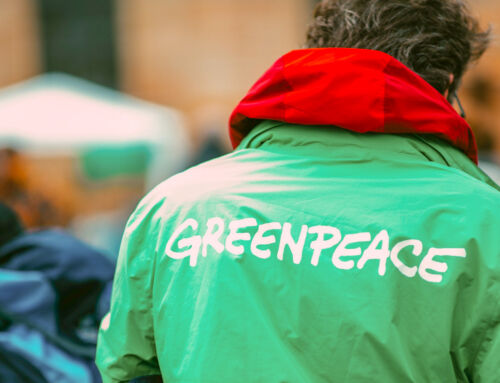View by Topic
Recent Articles
-
Migratory Bird Treaty Act Does Not Prohibit Incidental Take – AgainSaturday, April 19th, 2025
-
President Trump’s Bold Step to Rein in State Overreach in Climate ChangeSaturday, April 12th, 2025
-
Mandatory GHG Disclosures in Maryland Real Estate ContractsSaturday, April 5th, 2025
-
NYC Building Electrification Ruling is Interesting But Not a Game ChangerSaturday, March 29th, 2025
-
Greenpeace Ordered to Pay $667M in Blow to ActivismSaturday, March 22nd, 2025
View by Month/Year
“Green Building Law Update” Headlines
Recent Articles & News from
Stuart Kaplow’s blog
at GreenBuildingLawUpdate.com
- President Trump’s Bold Step to Rein in State Overreach in Climate Change April 13, 2025
- Mandatory GHG Disclosures in Maryland Real Estate Contracts April 6, 2025
- NYC Building Electrification Ruling is Interesting But Not a Game Changer March 30, 2025
- Greenpeace Ordered to Pay $667M in Legal Blow to Environmental Activism March 23, 2025
Subscribe to the Green Building Law Update!
Stuart Kaplow brings his expertise and extensive experience to the table with his unique digital publication, "Green Building Law Update". Subscribers receive regular updates to keep them informed about important issues surrounding Environmental Law, Green Building & Real Estate Law, as well as the emerging demand for Environmental Social Governance (ESG).
Get fresh content through the lense of Stuart Kaplow's cutting-edge expertise, innovative commentary and insider perspective. Don't miss another issue! Subscribe below.

New Greenwashing Case is Troubling to Future of ESG
On July 6, FossielVrij NL filed a greenwashing lawsuit in the Amsterdam District Court against Dutch airline KLM.
The overseas litigation is troubling because at its core the theory of the case is apocalyptic environmentalism, the belief that unless humans drastically reduce consumption population growth and affluence will overwhelm our planet. In this instance that an airline advertising campaign describing environmental attributes of the airline, which successfully results in more people flying, is in and of itself “greenwashing” because aviation accounts for a large percentage of greenhouse gas emissions and the advertising results in more emissions, or as William Vogt said in 1930, we must, “Cut back! Cut back” … “otherwise everyone will lose” in devastation on a global scale, perhaps including our extinction.
Specifically, the claim is KLM is making misleading advertising claims in its “Fly Responsibly” advertising campaign when it describes an option to buy carbon offsets, labeled ‘CO2ZERO’ which funds reforestation projects and further when it describes KLM’s experimental purchase of biofuels, all as “creating a more sustainable future” in that the airline is on track to reduce its emissions to net zero by 2050. The claim is not that any of that is not true, but rather that sustainable and ESG advertising claims appeal to consumers who will fly KLM and other airlines when the only current means of airlines to reduce greenhouse gas emissions is to fly less. So, a truthful advertising campaign that succeeds in more customers flying is greenwashing or ‘sustainable washing’ because there is no such thing as ‘flying responsibly’ and that KLM seeks company growth and increased flight sales, whilst it should be reducing emissions by reducing the number of flights “to keep a just, livable world within reach.”
Moreover, KLM’s marketing undermines the urgent action needed to minimize climate catastrophe.
“After all, the greenwashing actually promotes flying and the pollution it causes”
(quoting from an unofficial translation at page 14 of the 147 page complaint).
Greenwashing has often been described as conveying a false impression or providing misleading information about how a company’s products or services are more environmentally sound, is now a term being applied more broadly to ESG (.. yes, from environmental only to also include social and governance); and, sometimes in the EU termed sustainable washing. This case is that on steroids.
The term greenwashing is a play on “whitewashing,” which means attempting to conceal unpleasant or incriminating facts about something.
The compound word greenwashing was coined by Jay Westerveld in a 1986 essay responding to a card in a hotel room that read, “Save Our Planet: Every day, millions of gallons of water are used to wash towels that have only been used once. You make the choice: A towel on the rack means, I will use again ..” He noted that often little or no effort toward reducing energy waste was made by the hotel, although towel reuse saved them laundry costs. He concluded the real objective was increased profit labeling this and other profitable but ineffective environmentally conscientious acts as greenwashing.
The hotel industry’s “save the towel” campaign was of course not the first modern greenwashing. The Keep America Beautiful anti littering campaign was founded by beverage manufacturers and others in 1953, partly to forestall regulation of disposable containers.
In 1999, the word “greenwash” was added to the Oxford English Dictionary. And today it has a broader definition including not only environmental claims but also matters of ESG.
There have been a few government actions against companies alleged to have overstated ESG matters, but to date most if not all are brought as securities law violations and not greenwashing claims.
Just how sustainable a particular company really is can be a matter of debate. From a scientific perspective, there is no such thing as a truly sustainable company or industry, with or without evidence of a high ESG rating. No business organization will score high in every ESG factor, so a perspective that mitigates risk requires a broader declaration that may include artistic and philosophical perspectives.
We have thought about adopting a Polar Bear as our firm mascot because not only are the beasts charismatic, but they might carry with them a connotation of our firm’s climate bona fides, but some eco-litigator might find someone who was misled about our environmental deeds and see greenwashing.
There may be some cover provided to business, but likely not much from a cause of action like that in the KLM case, when the Federal Trade Commission updates its Green Guides later this year. Today there is a little direction provided by the FTC’s 2012 version of its Green Guides, the current update of the Guides, but that document is at this point more of a historical reference; although it does offer guidance on materials and energy sources that are “renewable,” and “carbon offset” claims. More government regulation would not have forestalled this case and will not protect businesses.
There is a recent World Federation of Advertisers first of its kind global guidance on environmental claims issued earlier this year, but it does not contemplate the nature of claims brought in the KLM case.
All of that observed, with matters of ESG being front and center in 2022, we expect dramatically more greenwashing risk, including government enforcement and private party litigation decrying the consequences of our heedlessness as well as more mainstream misrepresentation claims.
As the case proceeds we will report in a future post whether KLM’s advertising claims on CO2 offsets and alternative fuels are misleading and constitute greenwashing.
We suggest with good legal counsel companies can mitigate risk of greenwashing claims while ensuring their ESG claims are efficacious in doing their part to repair the planet and its people.









